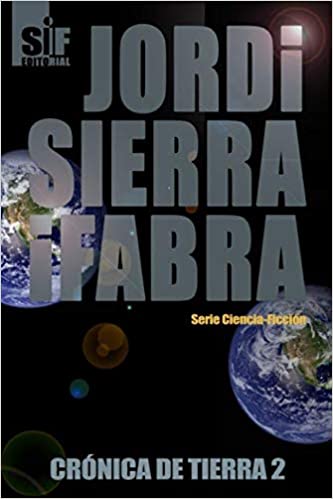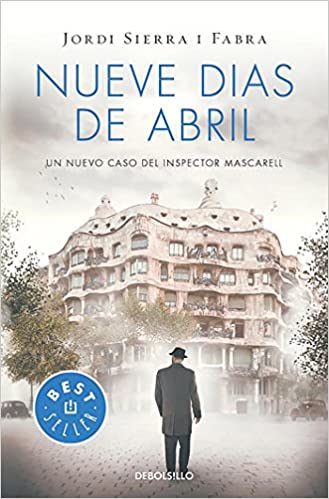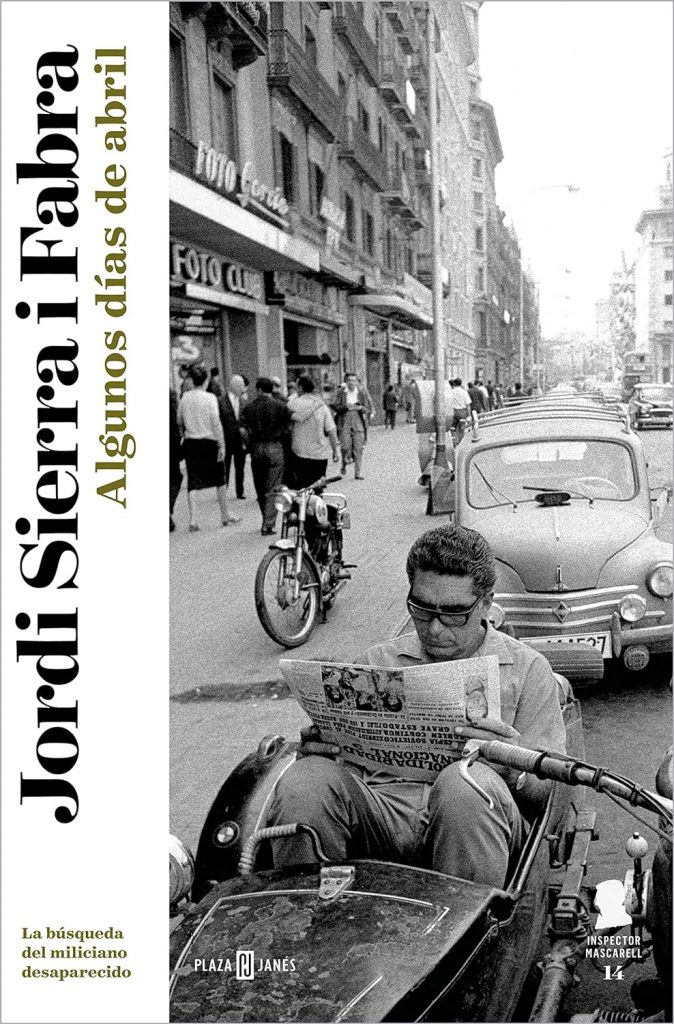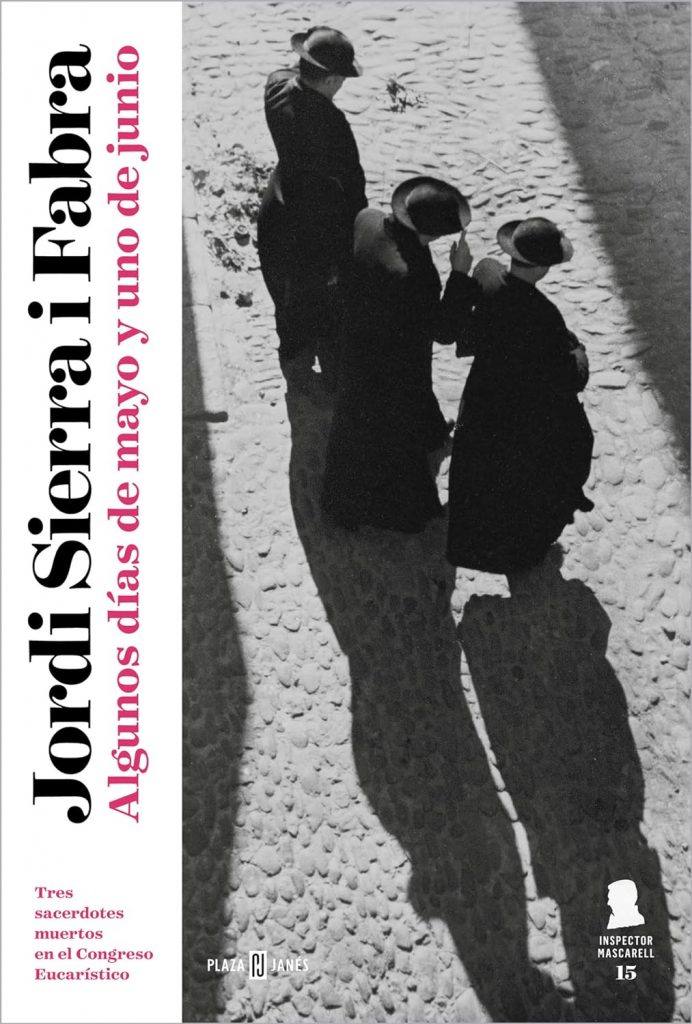From music to literature, or how Jordi Sierra and Fabra became one of the most prolific writers. Why…, what about his more than 400 published books? How can a human being give so much of himself? Adventure and mystery narrative, youth and adult books, biographies, musical history, forays into historical or science fiction novels, or even poetry. An author who encompasses everything and always comes out triumphant.
The truth is that writing already came from the cradle of this author, in the sense that he began to write as soon as he went from pencil to pen (a process that was done before), at his tender 8 years.
Faced with such creative diversity in the literary sphere, staying with the most representative novels ends up being a pleasure, more than ever, of full subjectivity. Either way, let's get to it, basically focusing on his dedication to the novel ...
3 recommended novels by Jordi Sierra i Fabra
Chronicle of Earth 2
I praise this novel science fiction because it is this genre, when presented with the necessary closeness, that tends to attract me the most when I am looking for readings that summarize entertainment, fantasy and interesting proposals for scientific hypotheses. A work inherited from the Lands Trilogy. Possibly a rarity in the case of Sierra i Fabra but it ends up being a gem for CiFi lovers.
Summary: It has been almost three centuries since humans have returned to their original planet and Earth 2 is inhabited only by machines. The stability that was achieved then seems ideal and unshakable.
Only the scientist Nathanian is aware that the lack of raw materials and the ability to adapt constitutes a condemnation of disappearance. When he proposes the revolutionary Genesis Project, the recreation of the human race, everything falters, to such an extent that murder reappears in society.
This is an unusual combination of space opera and police and judicial thriller, where the setting serves as an excuse to reflect on human nature and issues of our time, such as the role of innovation in civilization, the conflict between risky progressivism and immobilizing conservatism or the culture-nature binomial.
Shadows in time
The postwar period, that universe prolific in tightrope walking characters about their own lives. The devastated world, a world close in time and space. The Spain of not so many years ago and the lives of our grandparents. Jordi's proposal details the vicissitudes of a family that could well have been our own ...
Summary: In 1949, a family of Murcian immigrants settled in Barcelona in search of a better life. Love, struggle, repression, survival, desire and hope will mark their lives from that moment on. The epic story of a family that emigrated to Barcelona in search of a dream.
Carmen and her children arrive in Barcelona in 1949 to meet Antonio, the father of the family, who is waiting for them after working for several years in the city. Encouraged by the promise of a better life, away from the hardships of the countryside in Murcia, their homeland, they face the harshness of a world unknown to them where the wounds between victors and losers are still too open.
Úrsula's desire to succeed on stage as a singer, Fuensanta's difficulties to join the world of work, the love affairs of the gallant Ginés, Salvador's fight against intolerance and the gap that will begin to be created between Carmen and Antonio due to secrets of a dark marriage will mark their destinies in a country that is striving towards the future.
Nine days of april
Belonging to an entertaining series, nominated with a particular set of dates and months, and for me the most outstanding of the entire series. A series commanded by Inspector Mascarell that mixes the crime novel and the historical one. Cases, dates, pending issues and the social reflection of a Spain in endless transition.
Summary: Barcelona 1950. Upon finding Agustín Mainat next to the corpse of Gilberto Fernández, a diplomat murdered in his own home, the police consider the case closed. Mascarell, however, believes in Agustín's innocence. Was it a crime of passion? A political assassination? Parricide? International espionage? A tangle of intrigue hangs over him.
This is the sixth case of Inspector Mascarell. With its usual documentary rigor, showing the chiaroscuro of Spain in the second half of the XNUMXth century, Nine days in April follows in the wake of its five predecessors: Four days in January, Seven days in July, Five days in October, Two days in May and Six days of December.
Other recommended books by Jordi Sierra i Fabra
Some days in April
Fourteenth installment of a police series that over time will take on the dimension of a classic of the genre. Because with Miquel Mascarell as an inspector or now on his own, he has given and will give a lot. Because beyond the substance of its plots, each scenario serves the cause of the historical chronicle with that full validity of the intrahistorical, of the testimonial, of the fictions made complete experiences of other times.
April 1952. Miquel Mascarell and David Fortuny receive a visit from Montserrat, a war widow, in their detective agency. She or not so widowed: the woman is not sure that her husband has died and she wants to confirm it so she can remarry "as God intended."
Thirteen years have passed since the end of the Civil War and there are barely any witnesses left of the last days in which Benito García showed signs of life. The investigation focuses not only on the search for him, but also on the search for the group of friends who in 1936 went to fight for democracy and died at the hands of a dictatorship. All? No, there are still some people involved with whom to start removing the past.
One full of surprises that will make them travel on David's motorcycle through some of the places where they fought in the throes of the war. Is Benito García alive? And if so, why hasn't he shown any signs of life in thirteen years? Miquel and David will discover a transcendental secret in a passionate story of love and redemption with one of the most surprising endings of the series.
Some days in May and one in June
Fifteenth installment of an Inspector Mascarell that already points to Montalbano in experience, depth and taste of the fans...
May 1952. The Eucharistic Congress is celebrated in Barcelona, the city becomes the focus of the world and life begins to take on a different color with the end of ration cards, the opening of Franco's prisons and the relaxation of restrictions. . Barcelona seethes with religious fervor: Franco, personalities from all walks of life, the Pope's envoy and thousands of priests, nuns and Catholics arrive by car, train, boat or plane from all over the world.
In this context, the rector of a convent calls detective David Fortuny to ask for help: three priests have committed suicide just a few days apart.
Miquel Mascarell knows that "priests" and "suicide" are two words that do not fit, and even more so since they are three, without having contact with each other or apparent relationship. Thus begins an investigation that will unravel a personal drama interwoven over time that will threaten not only the peace of Congress, but the future life of the city, because Barcelona and Mascarell may be in the eye of the hurricane.





